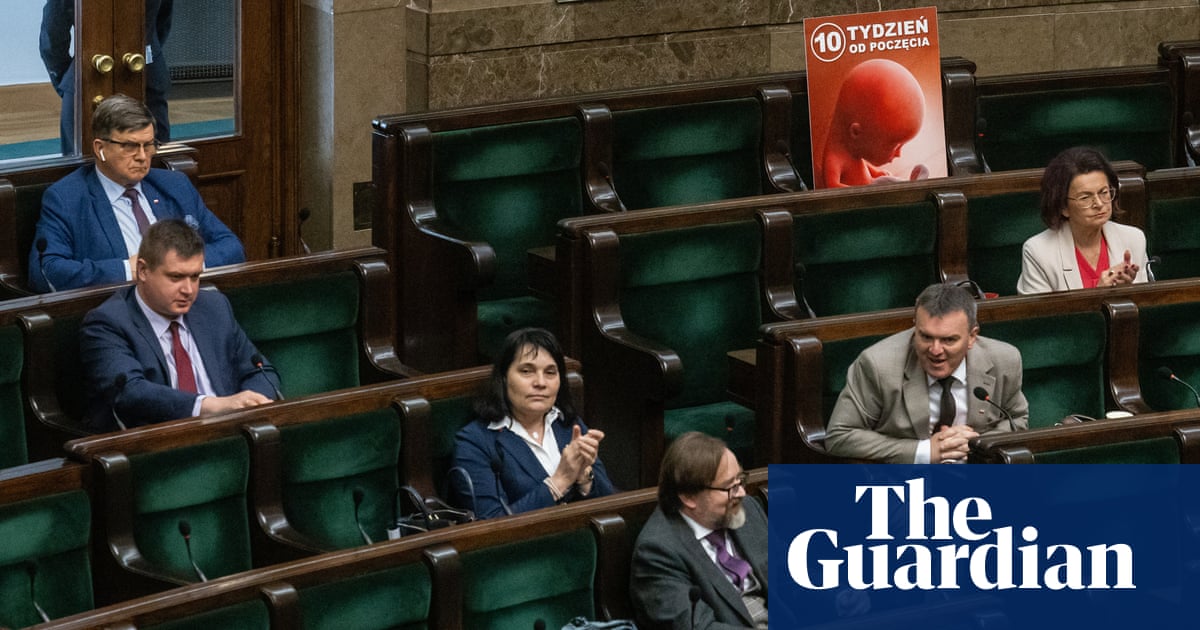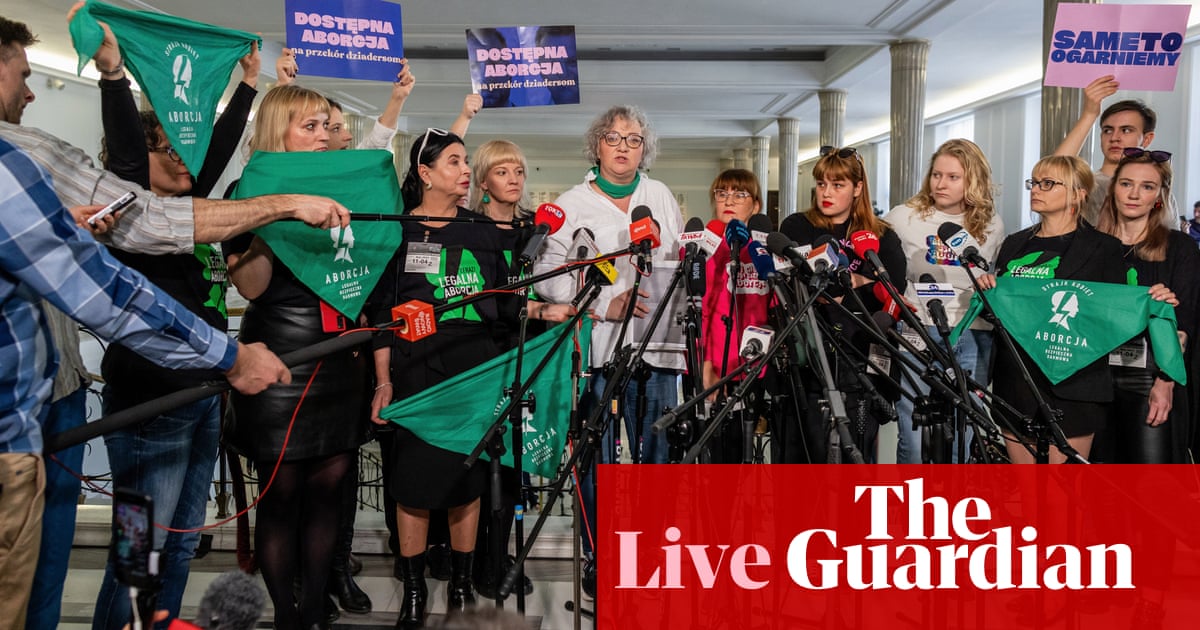
Poland’s parliament has begun a long-awaited debate on loosening the country’s near total ban on abortion, in what campaigners have described as a crucial test of the country’s new government.
More than three years after hundreds of thousands of people poured on to the streets wielding placards that read “the revolution has a uterus” and “my body, my choice”, MPs on Thursday will consider four proposals.
Two of the bills are aimed at legalising abortion up to the 12th week of pregnancy and another is focused on decriminalisation. The fourth, introduced by the conservative Third Way alliance, seeks a return to the strict 1993 laws hammered out between political leaders and the Catholic church, which were tightened in 2020.
The debate is expected to last hours and MPs are due to vote on Friday on whether to send the bills to a special commission for further study.
“The state can’t pretend that abortion doesn’t exist - they’re being done, always have and always will,” Katarzyna Kotula, the equality minister, told parliament.
“The state must do everything to ensure that abortion is safe, accessible, legal and takes place in appropriate conditions,” she added.
Poland’s Federation for Women and Family Planning described the debate as a “massive test” of how MPs saw women’s rights. “Women elected this government and our demands are clear – we want legal, safe and accessible abortion,” the organisation wrote on social media. “This week we will find out who was worthy of our vote and who we will not trust again.”
Poland, long home to some of the EU’s strictest abortion laws, further curtailed women’s rights under the previous rightwing populist government and a 2020 constitutional ruling that barred abortion in the case of foetal abnormalities.
The crackdown was linked to the deaths of at least six women as some doctors prioritise saving foetuses – either for ideological reasons or in an attempt to avoid legal consequences – in what Human Rights Watch described last year as a “climate of fear that has heightened risks for women and girls”.
Marta Lempart, of the Polish Women’s Strike, a key player in organising the mass protests that followed the 2020 ruling, expressed concern that Third Way would join with far-right parties to defeat the bills in the first reading.
She said doing so would be “spitting in the face” of the hundreds of thousands of people who had demanded change. “It’s women of Poland who brought victory to the new government,” Lempart said.
The long-running question of how to reform the draconian abortion laws has cast a spotlight on the deep divide in the prime minister Donald Tusk’s unwieldy ruling coalition.
On Tuesday Tusk said he hoped MPs from his coalition would allow the legislation to clear the first hurdle in parliament. “There are many indications that this will be the case,” he said.
Even if the bills are eventually approved by parliament, the question remains of whether the president, Andrzej Duda, who is aligned with the rightwing former government, will sign them into law.
Last month Duda used his veto to kill legislation that would have provided prescription-free emergency contraception to girls and women aged 15 and over, citing his desire to “respect constitutional rights and the standard of health protection for children”.
The government later said it would bypass Duda’s veto by allowing pharmacists to provide morning-after pills.
While a recent Ipsos survey suggested that 62% of people in Poland support the right to abortion up to 12 weeks, anti-abortion groups mobilised before Thursday’s debate, announcing plans for a march through Warsaw and a rally outside the parliament building.












